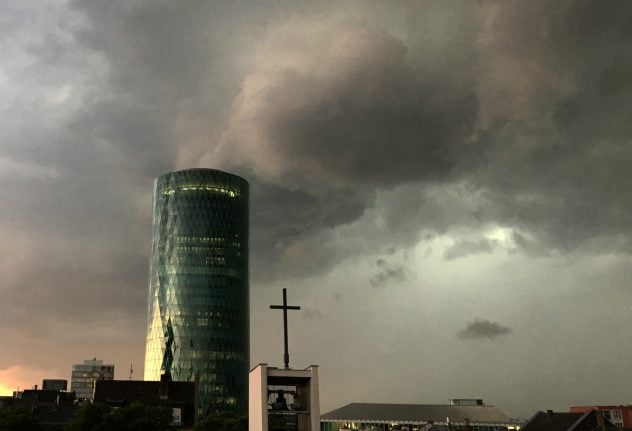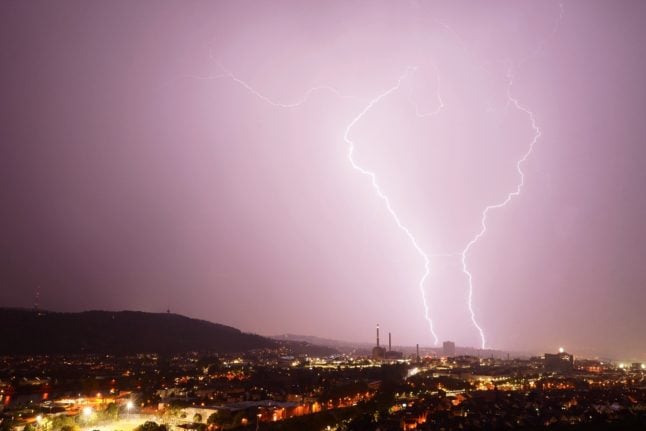Torrential rain and gale force winds forced Deutsche Bahn to delay all travel out of the central station for a half hour period on Tuesday afternoon, starting at 2.45pm.
Flights out of Frankfurt Airport, the busiest air hub in Germany, were also delayed, and in some cases cancelled altogether.
Planes arriving at the airport were given the chance to land, but they were not brought into the gates by the land crew, so as not to endanger their lives.
Frankfurt fire services reported that they were called out roughly 180 times. Volunteer crews were also called into action to assist their professional colleagues. The main causes for call outs were trees that had been blown over by the wind and flooded buildings. No injuries were reported.
The German Weather Service (DWD) announced a severe weather warning for the Rhine-Main area for the day. It said that winds of up to 98 km/h had been recorded at Frankfurt Airport, and warned that storms would continue into the night.
After days of warm weather, the whole of Germany is to face more unsettled conditions, as a cold front moves in from the east coast of Scotland. By Friday the DWD expects rain throughout much of the country.




 Please whitelist us to continue reading.
Please whitelist us to continue reading.